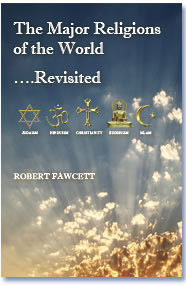| < Previous | Next > |
 Death and Resurrection of Jesus
Death and Resurrection of Jesus
Christians consider the resurrection of Jesus to be the cornerstone of their faith (see 1 Corinthians 15) and the most important event in human history.
Among Christian beliefs, the death and resurrection of Jesus are two core events on which much of Christian doctrine and theology is based. According to the New Testament Jesus was crucified, died a physical death, buried within a tomb, and rose from the dead three days later. The New Testament mentions several resurrection appearances of Jesus on different occasions to his twelve apostles and disciples, including "more than five hundred brethren at once," before Jesus' Ascension to heaven.
Jesus' death and resurrection are commemorated by Christians in all worship services, with special emphasis during Holy Week which includes Good Friday and Easter Sunday.
The death and resurrection of Jesus are usually considered the most important events in Christian Theology, partly because they demonstrate that Jesus has power over life and death and therefore has the authority and power to give people eternal life.
Christian churches accept and teach the New Testament account of the resurrection of Jesus with very few exceptions. Some modern scholars use the belief of Jesus' followers in the resurrection as a point of departure for establishing the continuity of the historical Jesus and the proclamation of the early church.
Some liberal Christians do not accept a literal bodily resurrection, seeing the story as richly symbolic and spiritually nourishing myth. Arguments over death and resurrection claims occur at many religious debates and interfaith dialogues. Paul the Apostle, an early Christian convert and missionary, wrote, "If Christ was not raised, then all our preaching is useless, and your trust in God is useless."
Top ^
| < Previous | Next > |




